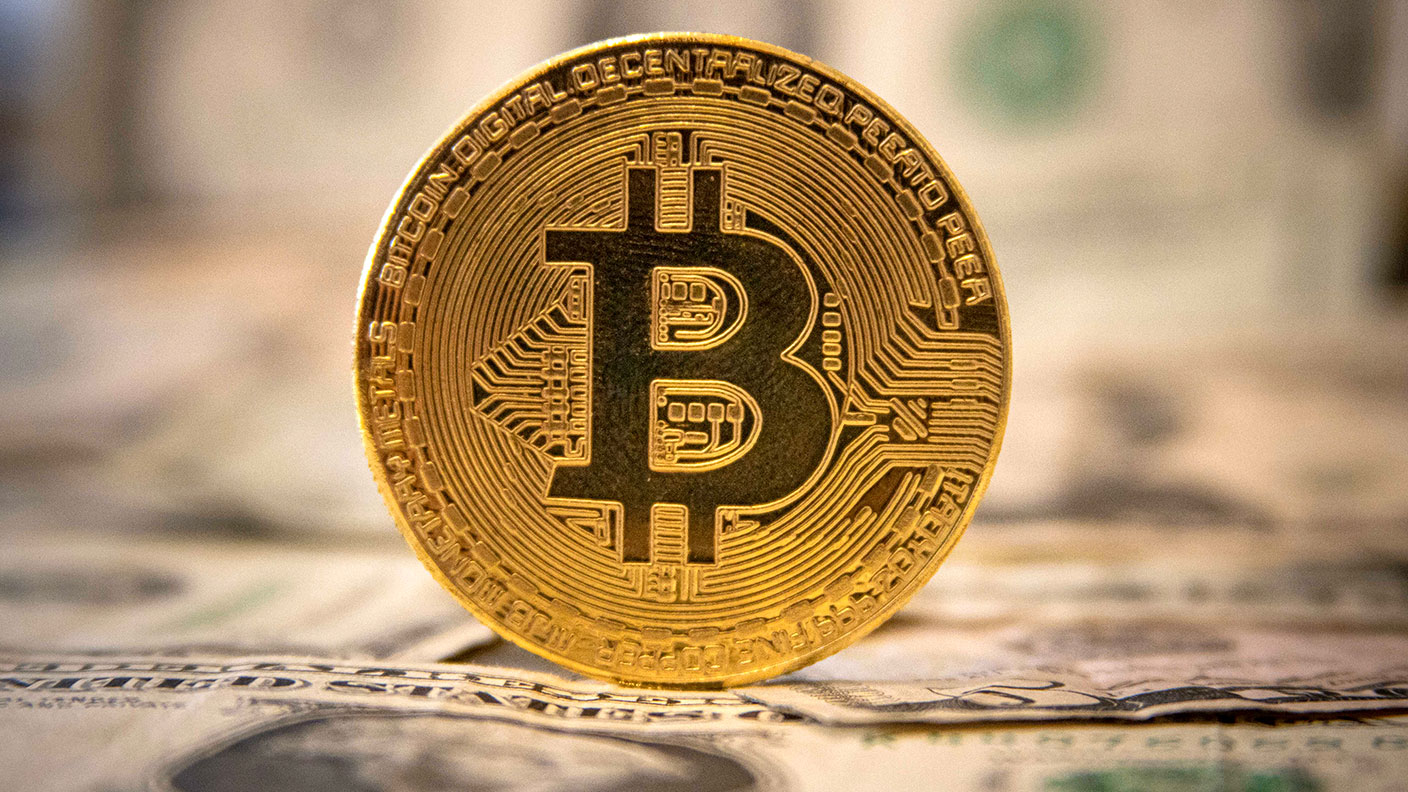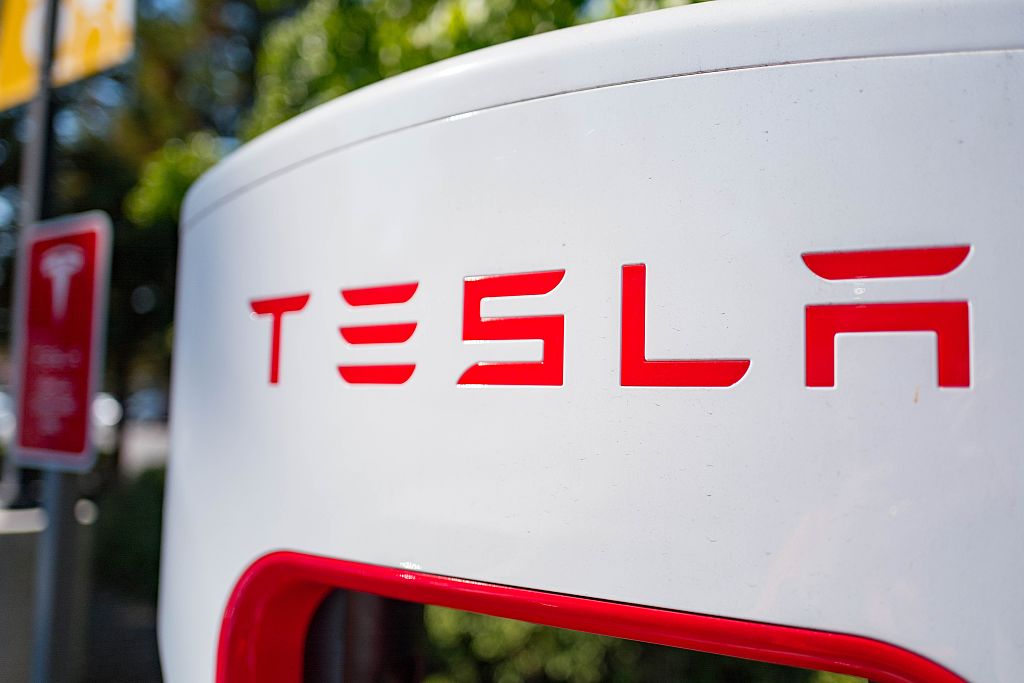How will Joe Biden’s capital gains tax rise affect crypto prices?
The US president wants to increase capital gains tax – and that’s going to hit a lot of American cryptocurrency speculators. Saloni Sardana looks at how it could affect the market.


Get the latest financial news, insights and expert analysis from our award-winning MoneyWeek team, to help you understand what really matters when it comes to your finances.
You are now subscribed
Your newsletter sign-up was successful
Want to add more newsletters?

Twice daily
MoneyWeek
Get the latest financial news, insights and expert analysis from our award-winning MoneyWeek team, to help you understand what really matters when it comes to your finances.

Four times a week
Look After My Bills
Sign up to our free money-saving newsletter, filled with the latest news and expert advice to help you find the best tips and deals for managing your bills. Start saving today!
If you bought bitcoin or another cryptocurrency in the last few months, chances are your portfolio has seen both pain and joy in equal measure. We saw that yesterday when bitcoin tanked after Tesla’s Elon Musk said the company would no longer allow its cars to be bought with bitcoin.But crypto portfolios could face a much bigger threat in coming weeks: the capital gains taxes announced in US president Joe Biden’s $1.8trn “American Families Plan” last month.
What has he proposed and why does this spell trouble for crypto hodlers – even those who aren’t liable for the tax themselves?
Biden’s big capital gains tax hike
Biden wants to raise the highest long-term capital gains tax (CGT) rate in the US from 20% to 39.6% for people earning more than $1m a year. In the US, there are short-term (less than 12 months) and long-term (over a year) capital gains tax rates. Short-term gains are taxed at between 10% and 37%, while long-term gains attract a tax rate of 0%, 15% or 20%, depending on the individual’s income.
MoneyWeek
Subscribe to MoneyWeek today and get your first six magazine issues absolutely FREE

Sign up to Money Morning
Don't miss the latest investment and personal finances news, market analysis, plus money-saving tips with our free twice-daily newsletter
Don't miss the latest investment and personal finances news, market analysis, plus money-saving tips with our free twice-daily newsletter
Bitcoin and several other cryptocurrencies have risen exponentially in the past year. As a result, longer-term holders now face the spectre of higher capital gains taxes –assuming that they keep holding. Those earning over $1m could end up paying 43.4% on any profits (that includes the existing 3.8% surcharge on higher income investors). And those in areas such as California or New York, with other taxes to add on top, could face handing over more than 50% of the profits on their crypto assets.
That’s quite the increase. And while Republicans strongly oppose Biden’s tax plans (which are partly to fund his two-stage infrastructure package, the “Build Back Better” plan), in reality he can push the package without bipartisan support if it turns out to be necessary. So there’s a decent chance of it actually getting onto the statute books.
The tax measures may trigger a sell-off in crypto markets
Clearly, if you’re going to see profits taxed more highly in the future, then some investors might like to take their profits now to be taxed at the lower rate. So it’s no surprise that news of the measures, proposed late last month, triggered a slide in the value of many crypto currencies.
And if the measures are pushed through, then the crypto market should brace itself for a sharp selloff, according to several tax experts MoneyWeek spoke to. “It’s a fair assumption that if the proposals become reality that it could generate some significant turbulence in the crypto markets as US investors seek to crystallise gains before any tax increase takes place,” says Chris Etherington, a private client tax partner at RSM UK.
Alex Straight, a partner at Blick Rothenberg, notes: “If Biden raises the long term capital gains tax rate to 39.6% for high earners who fall into that tax bracket, the benefit of holding onto your asset for greater than 12 months to achieve a tax saving would disappear. This tax difference is a key cost for regular people buying and selling cryptocurrency for ordinary use in the US.”
But he notes that as the tax benefit of holding for longer disappears as and when rates rise, more people could then trade more freely.
In the longer run however, the CGT measures will greatly alter the value of the crypto market, says Leigh Sayliss, partner at law firm Howard Kennedy: “Investors may wish to sell cryptocurrency, in order to crystallise any capital gain at the current tax rates – but that does not necessarily prevent other investors from wanting to buy the same currency once their gains have been locked in.”
Jason Cozens, founder and chief executive of fintech Glint says fears of higher inflation may still keep demand for cryptocurrencies strong irrespective of Biden’s plans: “Although the new CGT measures may be somewhat targeted at crypto holders, this could actually drive more consumers towards alternative currencies such as cryptos and gold as consumers are hit by increased taxation just as inflation spikes and interest rates remain at historic lows”.
So while investors should definitely have these tax rises on their radar, it isn’t a reason to completely freak out yet. Pay attention to the space but don’t put all your eggs in one bitcoin.
Get the latest financial news, insights and expert analysis from our award-winning MoneyWeek team, to help you understand what really matters when it comes to your finances.
Saloni is a web writer for MoneyWeek focusing on personal finance and global financial markets. Her work has appeared in FTAdviser (part of the Financial Times), Business Insider and City A.M, among other publications. She holds a masters in international journalism from City, University of London.
Follow her on Twitter at @sardana_saloni
-
 Can mining stocks deliver golden gains?
Can mining stocks deliver golden gains?With gold and silver prices having outperformed the stock markets last year, mining stocks can be an effective, if volatile, means of gaining exposure
-
 8 ways the ‘sandwich generation’ can protect wealth
8 ways the ‘sandwich generation’ can protect wealthPeople squeezed between caring for ageing parents and adult children or younger grandchildren – known as the ‘sandwich generation’ – are at risk of neglecting their own financial planning. Here’s how to protect yourself and your loved ones’ wealth.
-
 Key lessons from the MoneyWeek Wealth Summit 2025: focus on safety, value and growth
Key lessons from the MoneyWeek Wealth Summit 2025: focus on safety, value and growthOur annual MoneyWeek Wealth Summit featured a wide array of experts and ideas, and celebrated 25 years of MoneyWeek
-
 The Stella Show is still on the road – can Stella Li keep it that way?
The Stella Show is still on the road – can Stella Li keep it that way?Stella Li is the globe-trotting ambassador for Chinese electric-car company BYD, which has grown into a world leader. Can she keep the motor running?
-
 Tesla seeks approval to supply electricity to UK homes – could it disrupt the energy market?
Tesla seeks approval to supply electricity to UK homes – could it disrupt the energy market?Tesla has applied for a license to supply UK households with electricity, but taking on the biggest providers could prove challenging
-
 What's behind the big shift in Japanese government bonds?
What's behind the big shift in Japanese government bonds?Rising long-term Japanese government bond yields point to growing nervousness about the future – and not just inflation
-
 Tesla shares slump over Trump/Musk feud
Tesla shares slump over Trump/Musk feudA war of words has sent Tesla shares spiralling to the company’s largest single-day value decline in history
-
 Tesla is no longer the world’s largest electric car maker. Should you invest?
Tesla is no longer the world’s largest electric car maker. Should you invest?Investors need to weigh up the potential of Tesla’s autonomous technology drive against struggles in its core carmaking business when deciding whether or not to invest
-
 Amazon shares fall on profitability concerns
Amazon shares fall on profitability concernsA big increase in capital spending plans compounded an earnings miss for Amazon following its Q4 results
-
 Halifax: House price slump continues as prices slide for the sixth consecutive month
Halifax: House price slump continues as prices slide for the sixth consecutive monthUK house prices fell again in September as buyers returned, but the slowdown was not as fast as anticipated, latest Halifax data shows. Where are house prices falling the most?
